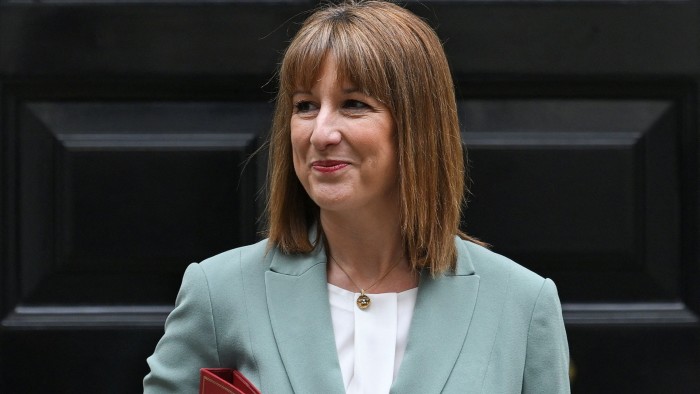Unlock the Editor’s Digest for free
Roula Khalaf, Editor of the FT, selects her favourite stories in this weekly newsletter.
UK Chancellor Rachel Reeves has delivered a spending review she said would put Britain on a path to “national renewal”, with the NHS receiving a £29bn annual boost while other areas of day-to-day spending faced cuts.
Reeves unveiled what she said were “Labour choices” for public spending for the next three or four years, with a focus on the NHS and schools and a £113bn borrowing-fuelled spree on capital projects.
However, departments facing real terms cuts in their day-to-day budgets include the Home Office, Foreign Office and the Department of Culture, Media and Sport.
Reeves’ statement to the House of Commons included a long list of investments on projects from northern railways and nuclear power stations to housing and prisons.
The chancellor, cheered on by Labour MPs, said the statement was a repudiation of Conservative “austerity”. “In place of decline, I choose investment. In place of retreat, I choose national renewal,” she said.
For the opposition Conservatives, Sir Mel Stride said Reeves had “lost control” of the public finances and that she would be forced to come back with more tax rises in her Autumn Budget.
The small print in Reeves’ 2025 spending review revealed some of the winners and losers, after what has been a fierce haggle over money between the Treasury and individual cabinet ministers.
Day-to-day spending by Whitehall departments will rise by an average 1.2 per cent in real terms over the next three years, but the NHS England budget will rise by 3 per cent a year in real terms — an increase of £29bn a year by the end of the parliament.
Reeves also increased the schools budget by £2bn in real terms by the end of the parliament, or 1.1 per cent a year growth per pupil.
Defence, which has seen its budget topped up by cuts to overseas aid, was another big winner, while local councils, some of which are facing bankruptcy, will receive an extra £3.4bn of grant funding by 2028/9.
After bitter negotiations between Reeves and home secretary Yvette Cooper, “police spending power” will rise by an average 2.3 per cent a year over the next three years. The Home Office budget will be squeezed by 1.7 per cent in real terms.
Investors shrugged off the statement, which did not include any fresh numbers on borrowing, with the 10-year yield hovering below 4.6 per cent. The blue-chip FTSE 100 was 0.3 per cent higher by mid-afternoon trading.
Reeves’ spending review lays the political ground for the rest of the parliament, with the goal of shoring up Labour support in parts of the north and midlands where Nigel Farage’s Reform UK is advancing.
The Treasury “green book”, which assesses value for money for public schemes, has been rewritten to put more weight on projects in less productive areas of the country.
She said the revised rules would mean that “no region has Treasury guidance wielded against them” and would permit more investment in poorer parts of the country.
Reeves focused heavily in her statement on the “good news”, in which she started to allocate £113bn of extra infrastructure spending over the rest of the parliament, much of it outside London and the south-east.
She promised to give more details soon of Labour’s plan to build faster rail connections linking the main cities of the north, while confirming an extra £39bn for affordable and social housing.
Reeves vowed that investments in nuclear power, artificial intelligence, skills and developing the so-called Oxford-Cambridge arc would all be part of a plan to “fix the foundations” of Britain.
The spending review is a big moment in Reeves’ chancellorship. Her poll ratings have dived since last July’s election to levels last seen during the brief time at the Treasury of Kwasi Kwarteng, who delivered the disastrous Tory 2022 “mini” Budget.
Reeves has argued she was able to dispense £113bn in extra infrastructure spending because of “choices” she made to loosen her fiscal rules for capital expenditure while keeping a tight grip on day-to-day spending.
Stride said: “Now the chancellor parades her largesse, but we all know what is coming in the autumn. She is constantly teetering on the edge of breaking her own fiscal rule.”




